
- World Cancer Day: February 4
- Prevention Tips: Healthy diet, no smoking
- Stages: 0, I, II, III, IV
- Treatments: Surgery, radiation, chemotherapy
- Deadliest Cancer: Pancreatic cancer
- Most Treatable Cancer: Prostate cancer
- Highest Death Toll: Lung cancer
- Types: Carcinoma, blastoma, sarcoma
- Common Cancers: Breast, prostate, lung
- Famous Cancer Survivors: Lance Armstrong, Fran Drescher, Kathy Bates
- Definition: Cancer Is Abnormal and Malignant Cell Growth
- Types: There Are More Than 100 Different Cancers
- Causes: Almost One Fourth of Cancer Deaths Are Tobacco Related
- Causes: Obesity and Poor Diet Are Big Cancer Factors
- Causes: Only 5-10% of Cancers Are Due to Genetics
- Causes: Some Viruses Can Cause Cancer
- Types: Cancers Are Classified By the Cell Type the Tumors Come From
- Diet: A Healthy Diet Is Part of Cancer Prevention
- Cancer Symptoms Can Easily Be Mistaken, Such as Weight Loss
- Cancer Treatments Attack the Problem Differently
- Breast and Prostate Cancers Are the Most Common
- Pancreatic Cancer is the Deadliest Cancer, 94% Will Die within Five Years
- Lung Cancer Kills Over 150,000 People Yearly
- February 4 Is World Cancer Day
- Cancer Ribbons Are Different Colors for Different Cancers
- Cancer Stages Indicate Size of Tumor
Cancer Is Abnormal and Malignant Cell Growth
Cancer is caused by malignant, abnormal cell growth. According to cancer facts, these abnormal cells are capable of invading different parts of the body and continue to grow unless their growth is stopped by treatment. They can interfere with normal organ function.
There Are More Than 100 Different Cancers
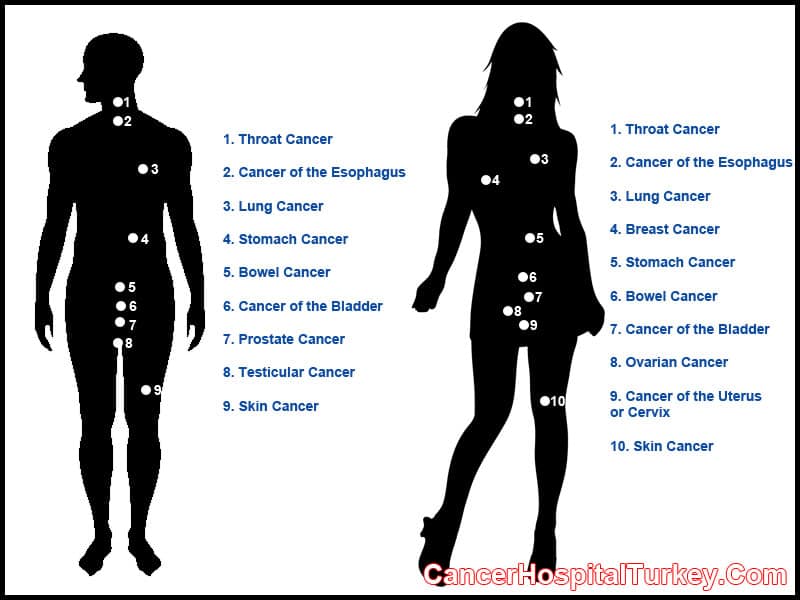
Because cancer can occur almost anywhere in the body, there are over 100 different types. Common cancers include breast cancer, colon cancer, prostate cancer, lung cancer, melanoma and bladder cancer.
Almost One Fourth of Cancer Deaths Are Tobacco Related
Evidence suggests that 22% of cancers are caused by tobacco use. Cancer facts show that around 90% of all lung cancer is tobacco related. Other tobacco-related cancers include cancer of the oesophagus, pancreas, larynx and bladder. Tobacco smoke contains more than 50 carcinogens; these are substances that have been evidentially linked to various cancers.
Obesity and Poor Diet Are Big Cancer Factors
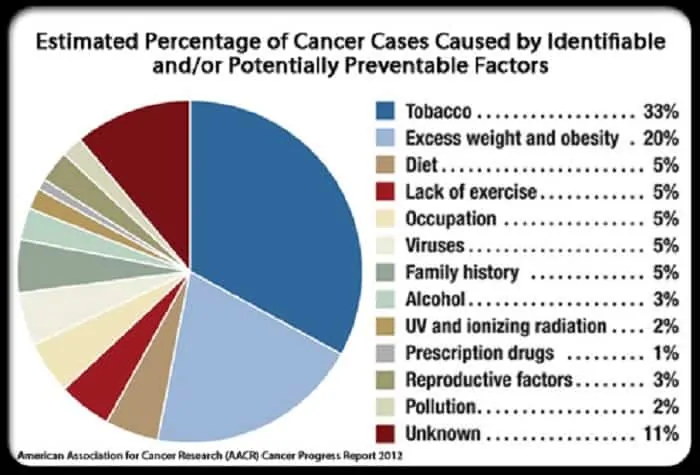
There are believed to be different causes of cancer. Up to 35% of cancer is thought to be due to poor diet, lack of exercise and obesity. Cancers caused by obesity, poor diet and lack of exercise are believed to be responsible for 14-20% of all cancer deaths.
Only 5-10% of Cancers Are Due to Genetics
Though genetics are often touted as a leading cause of cancer, only 5-10% of cancer occurrence is due to genetics. Cancer is more frequently caused by smoking, physical inactivity and obesity. Less than 0.3% of the population has a genetic inclination towards certain cancers.
Some Viruses Can Cause Cancer
Oncoviruses are viruses that can cause cancer. Combined with cancer-causing bacteria and parasites, they account for approximately 18% of all cancer deaths. Cancer facts indicate that human papillomavirus and hepatitis B are examples of oncoviruses.
Cancers Are Classified By the Cell Type the Tumours Come From
In order to be precise when describing a cancer, cancers are classified by where they originated in the body. There are five classifications: carcinoma, sarcoma, lymphoma and leukaemia, germ cell tumours and blastoma.
Carcinomas are the most common and start in the epithelial cells. Sarcomas originate in connective tissue. Lymphoma and leukaemia relate to blood cancers. Germ cell tumours come from pluripotent cells and blastomas come from embryonic tissues.
A Healthy Diet Is Part of Cancer Prevention
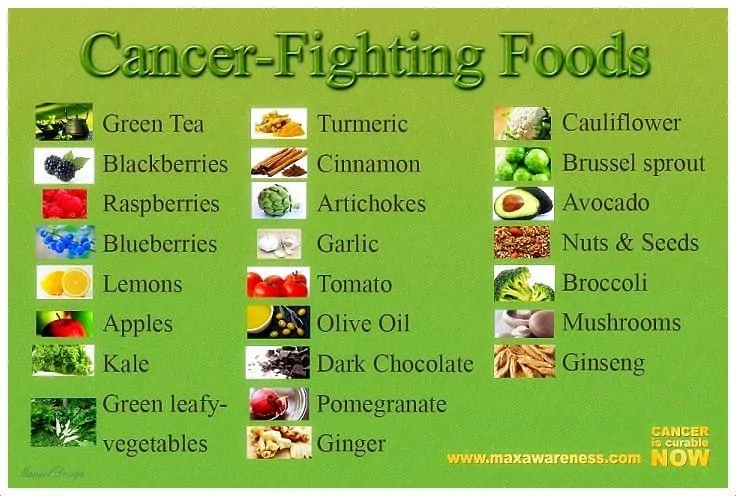
Because up to 35% of cancer can be attributed to poor diet and exercise choices, a healthy diet and exercise regime is a necessary part of cancer prevention. Smoking cessation programs are also a great way to reduce cancer risk.
Cancer Symptoms Can Easily Be Mistaken, Such as Weight Loss
At first, cancer has no symptoms. As the abnormal cancer mass grows, symptoms may appear. These symptoms are not very specific and can be attributed to many different conditions. Some symptoms, like weight loss or a cough may not be easily recognised as indicative of cancer.
Because of this, cancer symptoms can easily be mistaken for something else. Some symptoms, like lumps in breast tissue, clearly highlight a problem that needs to be checked by a doctor.
Cancer Treatments Attack the Problem Differently
Cancer facts tell us that there are several different treatment options for cancer. These include surgery, chemotherapy, and radiation, among others. The goal of surgery is to remove the cancerous mass.
Chemotherapy aims to kill cancer cells through the use of cytotoxic anti-neoplastic drugs. Radiation uses ionic radiation to kill cancer cells. Often, treatment plans include a mix of techniques in order to best eradicate the cancer or prolong life. There are also experimental treatments available.
Breast and Prostate Cancers Are the Most Common
The most common cancers are breast cancer and prostate cancer with over 230,000 new cases yearly. Lung cancer rounds out the top three with over 200,000 new cases yearly. Prostate cancer is a very survivable cancer, with a mortality rate of 0.8%. Breast cancer has a mortality rate of 10%. Lung cancer is one of the deadliest cancers, with a mortality rate of 83%.
Pancreatic Cancer is the Deadliest Cancer, 94% Will Die within Five Years
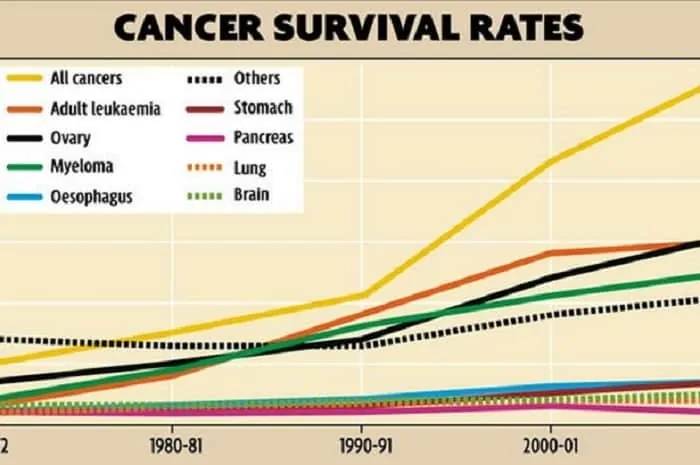
Of those individuals diagnosed with pancreatic cancer, 94% will die within five years. Pancreatic cancer is the least survivable cancer. Cancer facts indicate that American actor Patrick Swayze and Apple tech icon Steve Jobs both died from pancreatic cancer.
Lung Cancer Kills Over 150,000 People Yearly
Approximately 80-90% of lung cancer cases are due to tobacco smoke. It is one of the most preventable cancers and it is also the cancer that kills the most people. Over 200,000 people are diagnosed with lung cancer yearly and over 150,000 die from it. It is the most common form of cancer individuals die from.
February 4 Is World Cancer Day
The goal of World Cancer Day is to provide information. Every year on February 4, the Union for International Cancer Control encourages organisations to share information about prevention and early detection in order to help eradicate preventable cancers.
Cancer Ribbons Are Different Colours for Different Cancers
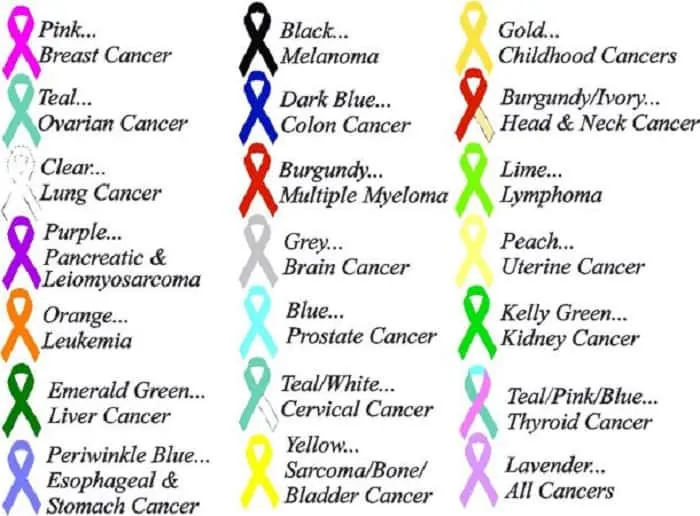
One of the most prominent cancer ribbons is the pink breast cancer ribbon. Other cancers utilise different colours to raise awareness. Brain cancer is represented by a grey ribbon, colon cancer by a dark blue, lung cancer by white, and prostate cancer by light blue.
Cancer Stages Indicate Size of Tumour
The TNM system is the most commonly used staging system for cancer. The different stages in the system relate to the size of the tumour and reach of the tumour. Stage 0 indicates abnormal cells but no visible cancer. Stages I, II, and III indicate the presence of the tumour and the amount it has spread to other organs. Stage IV indicates the tumour has spread to distant organs. Stage IV is the final stage.
Cancer Facts – Facts about Cancer Summary
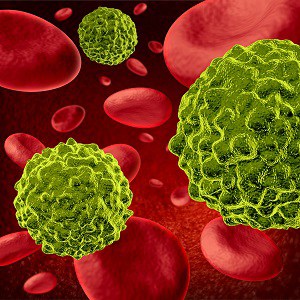 Cancer is defined as the growth of abnormal, malignant cell growth. These growths are tumours that invade different organs and affect their functions. Common treatments include radiation, chemotherapy and surgery.
Cancer is defined as the growth of abnormal, malignant cell growth. These growths are tumours that invade different organs and affect their functions. Common treatments include radiation, chemotherapy and surgery.
The three most frequently diagnosed cancers are breast cancer, prostate cancer and lung cancer. Cancer stages inform patients about the severity of their cancer by describing the size of the tumour and how much it has spread. World Cancer Day is February 4 and aims to inform the public about prevention and early detection.
Was this page helpful?
Our commitment to delivering trustworthy and engaging content is at the heart of what we do. Each fact on our site is contributed by real users like you, bringing a wealth of diverse insights and information. To ensure the highest standards of accuracy and reliability, our dedicated editors meticulously review each submission. This process guarantees that the facts we share are not only fascinating but also credible. Trust in our commitment to quality and authenticity as you explore and learn with us.


